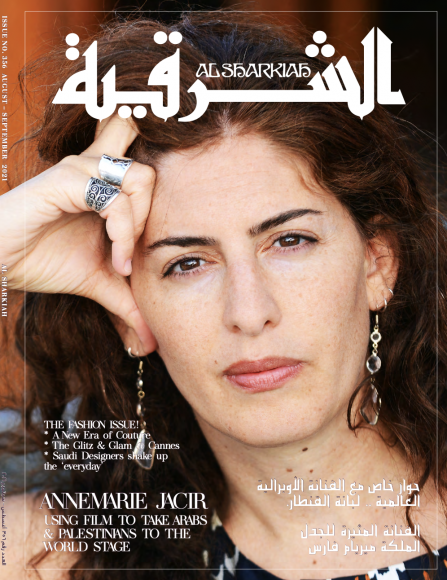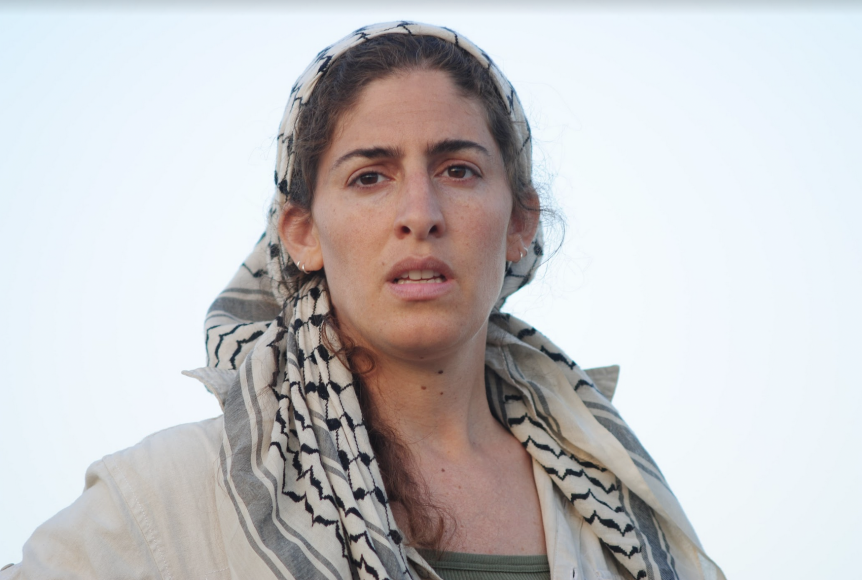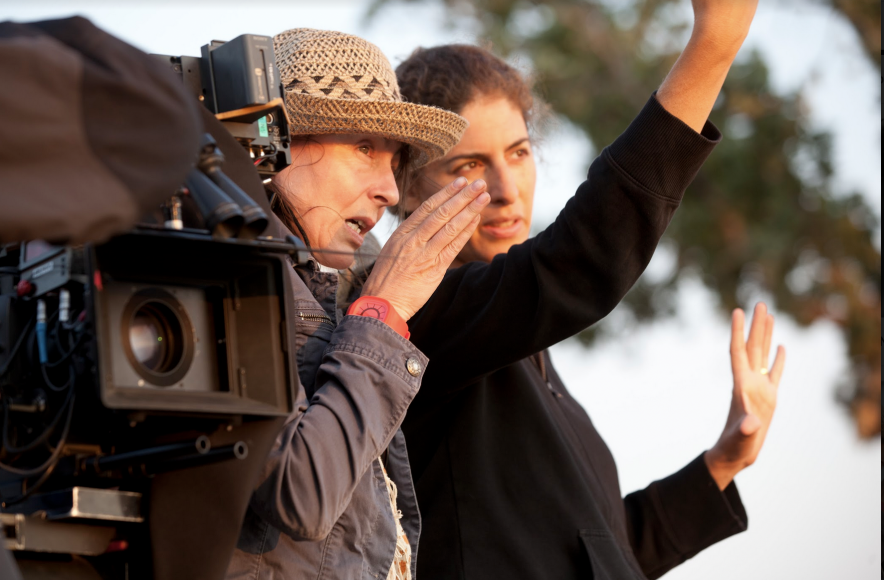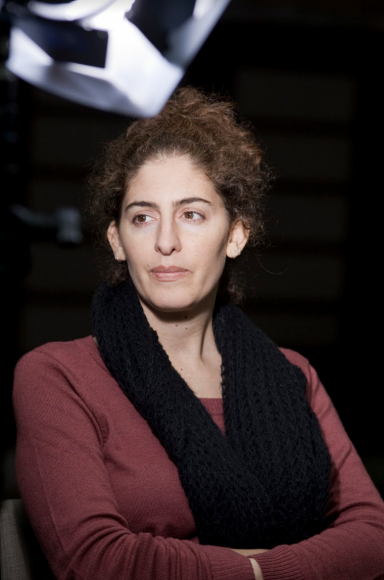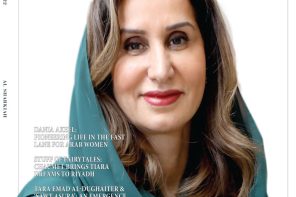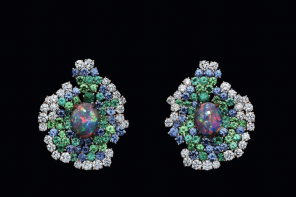A leading Palestinian female filmmaker who has written, directed and produced over sixteen films, Annemarie Jacir is the ambassador of Arab cinema in global festivals and competitions.
Two of her films have premiered as Official Selections in Cannes, one in Berlin and in Venice, Locarno, Rotterdam, Toronto and Telluride. All three of her feature films were selected as Palestine’s Oscar Entry for Foreign Language Film. Her short film Like Twenty Impossibles (2003) was the first Arab short film in history to be an official selection of the Cannes Film Festival and continued to break ground when it went on to be a finalist for the Academy Awards.
In an intimate conversation, Jacir speaks to Al Sharkiah about the milestones of her career, her mission to promote independent cinema in the region through Philistine Films, and to celebrate talents with the artist-run space Dar Yusuf Nasri Jacir for Art & Research in her hometown of Bethlehem in Palestine.
Annemarie, your career is filed with glorious milestones, local and international recognitions. So if you were to choose some words, how would you summarize your artistic path?
It has been a wild roller coaster with many ups and downs. I have felt so lucky and so blessed with precious, amazing moments; a life that I never dreamed of. And I’ve also been so low, found myself in dark places where I felt I was lost and couldn’t find my way. The struggle has been real. There have been endless battles. Sometimes just to exist. But the victories have been sweet.
You have participated in numerous film festivals, as a nominee and a judge. What’s your favorite out of all? And why so?
There is nothing more rewarding than sharing a film with an audience on the big screen. As a filmmaker, you spend years and years making a film and it’s a difficult and often lonely process. Once the film is complete, you can finally share it with people, with your audience. I just love sitting in the audience and hearing every reaction, every breath, I feel both excited and nervous every time.
Being an Arab director, how much was that a challenge in your career?
The challenges really depend on which stage of my career I was and where I was geographically located or working. I started off in the film industry by looking for work in L.A. – and definitely being Palestinian as well as being a woman meant there were major barriers to break down. I felt as a young woman I was relegated to certain jobs, and navigating a sexist atmosphere definitely made me who I am today, but I would not wish it on any woman trying to become a filmmaker. Being Palestinian on top of that in a place where Palestinians are demonized in almost every aspect of life was also something big to grapple with. Things have certainly changed today – and for the better – although we still have a long, long way to go.
An ongoing industry conversation, why do you believe women need to have more place behind the camera?
We all know that white men have dominated the film and television industry. Today there are more women involved than ever before, but it’s still a fact that women continue to be left out and also have to work more and to work harder to find their place and to be able to do their work. It’s not only women, but also working-class people, colonized people, and marginalized people. Why wouldn’t we want to have more diverse people behind the camera and telling the stories we have been denied?
At this moment I am working on my next film. Even though I have many films under my belt, and I am lucky to have a great team around me, we still do not have all the financing to make the film. It can be so disheartening because one spends years trying to find support. Salt of this Sea took me six years to make, When I Saw You took me five and Wajib also took me five – all because we still don’t have enough people in the Arab world who want to support the arts. Yet without the arts we are a people with no soul.
How do you carry the richness, but also sadness, of your country and culture through your works? And how does Palestine inspire your creative process?
I always look for poetry. I need that and I thrive on that. For me it comes in so many ways — through the pain of life, the pain that people carry, but mostly the great resistance I see all around me. The way that people hold on to life, to dignity, and to humor. It inspires me in my own work to find ways to translate that thing which I can only describe as love.
What image of your home-country Palestine would you like to pass on to the spectators?
I want to make films where people see themselves, see their own lives, and also see their dreams and fantasies whether they are beautiful or ugly. I love life and I love freedom. It is what I am always searching for and I would hope to share that desire for life in my work.
In your opinion what do Arabs need to make it in the industry and on an international scope?
To be devoted to their craft. To study it, learn it, and to work hard. Most filmmakers do not go to film school, do not have economic security or even political security. But to be obsessed with learning your craft and following what drives you is everything. Filmmaking is not a hobby. It’s something you have to be ready to compromise for, you have to put aside and leave your comfort zone, and to risk everything you have in order to do it. There is no net underneath you when you fall. And you need to be ready for that.
Apart from your profession as a director, you have founded Philistine Films. Please tell us more about the aim of your production company and some of its achievements so far.
I created Philistine Films in 1997 – when there was a huge void in the independent Arab film industry. We didn’t have crews, we didn’t have any funds or financial support in the Arab world, we didn’t have mentors. Philistine Films was founded to help lift us all up together – because film is nothing if not a collaboration. So it was a way to create something which would defend our independent, free voices and allow us to tell our stories on our terms, train new crew, and break the reliance on Western support. To have an independent cinema, you need to be independent.
I’m so proud of the work of Philistine Films today and our films. We have been lucky to work with so many wonderful filmmakers and have so much more coming up.
We’ve had films in Cannes, Venice, Berlin and every major festival. Feature films that have been in theaters across the globe as well as films that have been nominated for the Oscars. But more than any of that, we have been able to reach our own audience, the Arab audience, and share our films here on the ground.
And why did you establish the artist-run space Dar Yusuf Nasri Jacir for Art & Research? And how challenging is it to manage such a project in Bethlehem, Palestine?
My grandfather lost his home and then worked all his life to get it back. My father has the same passion for his homeland and his people and wanted to give something to his beloved city of Bethlehem. My sister and I co-founded Dar Yusuf Nasri Jacir for Art & Research with the idea to create a place for our community, and space to be creative, to think, to question and challenge each other. Dar Jacir offers workshops, art residencies, seminars, collaborations with the local community and the idea is for all of us to find a bit of freedom to create and to connect with each other. The space is managed by my sister Emily Jacir and Aline Khoury. They are doing amazing work in particularly difficult conditions, especially this year as we have not only been struggling with the pandemic and political situation, but the Israeli army ransacked our space and stole equipment and hard drives.
Finally, a word of advice for young Arab filmmakers who wish to launch their careers…
Let your heart and your intuition guide you. And remember, develop thick skin. It is rejection which will make you a good filmmaker.
Text by Victor Gee

